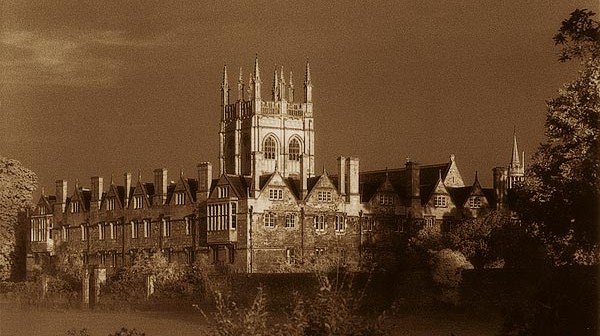httpv://www.youtube.com/watch?v=wPELTY6vSqk
Former Nixon aide John Dean talks about “proto-fascist tendencies” in the Bush administration and the Republican party
There is a lot of discussion these days among concerned old-school American conservatives about the “epistemic closure” that has become so apparent in the Rush Limbaugh-Fox News universe; that what now passes for conservatism in America is actually an antic form of nihilism that believes in nothing but obtaining and holding on to power at any cost. Its chief weapons are the propagation of lies, confusion, fear, and resentment. It is notable that two of the leading voices on the issue of epistemic closure are not American born and raised: one’s an ex-pat Brit, Andrew Sullivan, and the other an ex-pat Canadian, David Frum — both from countries with a strong, moderating Tory tradition.
I was a little disappointed to find that Frye evidently has nothing to say about Theodor Adorno and his notion of the “authoritarian personality,” but that doesn’t mean we shouldn’t at least glance at how Adorno and his co-authors frame the issue. The traits of the authoritarian personality are common and readily identifiable. Those traits are: “conventionalism, authoritarian submission, authoritarian aggression, anti-intraception, superstition and stereotypy, power and “toughness,” destructiveness and cynicism, projectivity, and exaggerated concerns over sexuality (sexual repression).” The authoritarian personality is therefore highly predisposed to follow the dictates of a strong leader and traditional, conventional values.
Does this really require much elaboration? We see these symptoms being played out on the right every day, and the further right you go, the more pathological the behavior becomes. Take just one example, “exaggerated concerns over sexuality (sexual repression).” It has become part of our satirical lore over the last few years that, the more homophobic the Republican/conservative/evangelical leader is, the more likely he will be outed for engaging in closeted homosexual activity (nicely bringing the principle of “projectivity” into play). The list is too long and the details too sad to bother lingering over. But if you are somehow unaware of the phenomenon, here’s a short list of some of the more notorious figures: Rev. Ted Haggard, Sen. Larry Craig, Dr. and Rev. George Rekers. They’ve added to our lexicon phrases such as “wide stance” and “long stroke.” The case of Rekers, the most recent outing, is especially disturbing because he’s both a psychiatrist and a minister — as well as the co-founder of the repulsive Family Research Council — who for decades has claimed that homosexuality is a psychological disorder that can be treated and “cured.” In May he was spotted returning from a ten day European vacation with a 20 year old male prostitute who confirmed sexual relations with Rekers.
The self-destructiveness of the authoritarian personality would be a matter of pity if it weren’t so devastating in its wider social implications. The epistemic closure of the authoritarian mindset will collapse in on itself eventually — but, as demonstrated by the recent world-wide financial meltdown brought about by derivative instruments designed ultimately only to make money for the brokers, the wider public is not necessarily spared the consequences.
Frye has his own version of epistemic closure, which in The Modern Century he calls a “closed mythology”:
